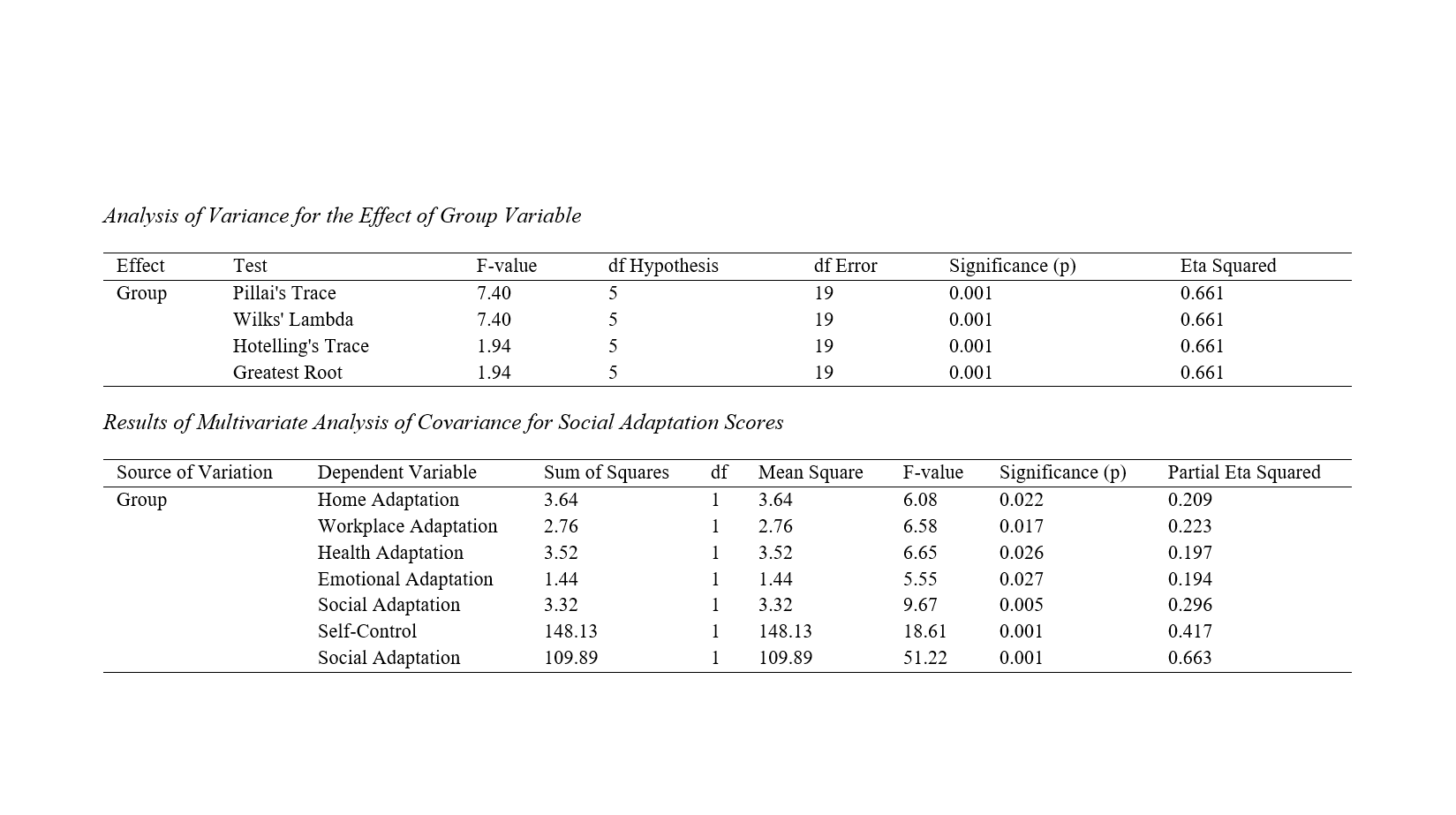The Effectiveness of Mindfulness Training on Self-Control and Social Adaptation in Housewives
Keywords:
Mindfulness training, Self-control, Social adaptationAbstract
Objective: The purpose of this study was to investigate the effectiveness of mindfulness training on self-control and social adaptation in housewives.
Methods and Materials: The research method was a quasi-experimental design using a randomized two-group pretest-posttest approach. The statistical population of the study comprised all housewives visiting Fateh Garden in the Jahanshahr neighborhood of Karaj in 2023. Considering that the minimum sample size for a quasi-experimental design is 30 participants, housewives who exercised at Fateh Garden during the week, met the research criteria, and were willing to participate after receiving explanations about the procedures and ethical assurances from the researchers, were selected. A total sample size of 30 participants (15 in the experimental group and 15 in the control group) was chosen using a voluntary sampling method and randomly assigned to the two groups. Data were collected using the Bell Social Adaptation Scale, the Tangney Self-Control Scale, and sessions based on the mindfulness training by Lewas and Schumann Oliver (2018).
Findings: Results indicated that mindfulness training had a positive and significant impact on self-control and social adaptation in housewives.
Conclusion: Thus, the potential of mindfulness training to enhance aspects such as self-control and social adaptation in couples can be utilized.
Downloads

Downloads
Additional Files
Published
Issue
Section
License
Copyright (c) 2024 Azam Ghanbari (Author); Azadeh Askari (Corresponding Author)

This work is licensed under a Creative Commons Attribution-NonCommercial 4.0 International License.









